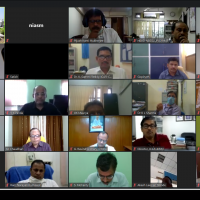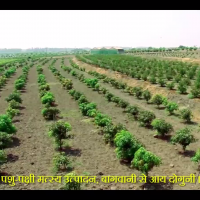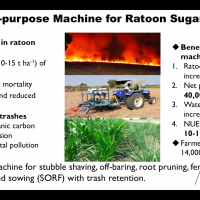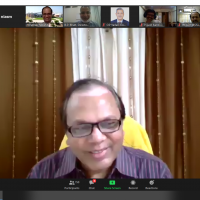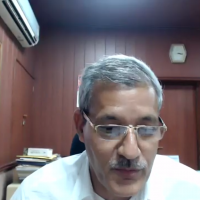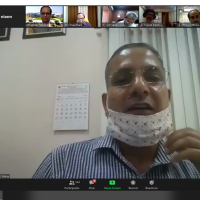Research Programmes at ICAR-NIASM reviewed by DDG(NRM) ICAR on 22nd May, 2020
The achievements and proposed future programmes of ICAR-NIASM, Baramati was reviewed by Dr. S.K. Chaudhari, DDG(NRM), ICAR in presence of the Directors of all the research Institutes in the NRM Division of ICAR and other Institutes. The three hours long video conferencing on May 22, 2020 was participated by about 160 scientists and researchers from various ICAR Institutes.
Dr. H. Pathak, Director of ICAR-NIASM gave an overview of the mandate, objectives and the progress achieved during the previous plan period spanning 2017 to 2020. He presented the future plans of the institute comprising 4 Umbrella and 4 Flagship Projects along with several in-house and externally-funded projects for the period from 2021 to 2025. He highlighted the plan for the academic activities including teaching and training of the Institute. The meeting provided an opportunity to get valuable suggestions from the scientists and Directors of different institutes, which can prove immensely useful in reorienting the research activities of the Institute. It was suggested that the ICAR-NIASM should build on the scientific leads obtained at other institutes to make the best use of the state-of-the-art research and infrastructure facilities at ICAR-NIASM. Establishing strong collaborations with other Institutes, therefore should be a prioritized task of the Institute.
Dr. Choudhary in his concluding remark appreciated the efforts of previous and present Directors and the staff in establishing the institute with excellent facilities and demonstrating the technologies in abiotically challenged site at which institute is located. He emphasized that the ICAR-NIASM should focus on basic and strategic research to support ongoing research at other institutes to address abiotic stress management.
Dr. Pathak acknowledged the valuable suggestions from all the participants and ensured that the suggestions will be internalized in the future research programmes of the institute in order to meet the expectations of farmers, scientists and policy makers. He expressed his gratitude for the past Directors of the institute, who strived hard to make this institute unique and also thanked all the staff of ICAR-NIASM for their significant contributions.

